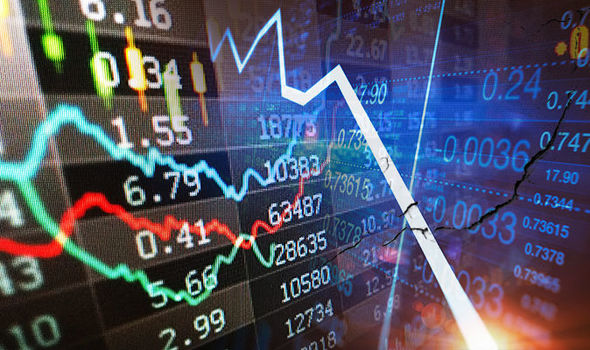Writing for Express Tribune, author Faraz Ahmed explains that Pakistan’s stock market has been facing a range of challenges for several years, including political chaos, extreme flooding, and geopolitical crises, the latest being the Russian invasion of Ukraine.
Despite hopes of the KSE-100 index crossing 50K or even 60K following the International Monetary Fund (IMF) deal, it has remained stagnant. The lack of a staff-level agreement with the IMF has kept investors on the sidelines, and the recent unprecedented three-notch downgrade by global rating agencies has spooked international investors, resulting in dried-up Foreign Investors Portfolio Investment (FIPI).
The gap between the valuation and price of the stock is widening as the price to earnings ratio of the KSE-100 Index hit 3x, and the dividend yield climbed to 10%. The tough IMF conditionality and political overhang are the two major factors that have contributed to this situation. Inflation is one of the most significant impacts of the IMF conditions on Pakistan’s economy. The IMF has pushed the central bank to undertake an incredibly tough monetary policy stance to control inflation which, as per recent figures from the Pakistan Bureau of Statistics (PBS), crossed 40%.
This hawkish move by the central bank may be effective in the long run, but it has an adverse short-term impact on the economy, resulting in higher borrowing costs and reduced consumer spending. This is already destroying the bottom line for many leveraged sectors in the stock market such as steel and cement. Both of these sectors widely underperformed the benchmark index last year. The fall in construction activities due to the floods and erosion of buying power has also kept genuine investors in the real estate sector at bay.
Similarly, the steel sector faced various headwinds, including the increasing price of raw material and a slowdown in demand due to an economic lull and political instability. Unfavorable effects of the anticipated capacity expansions by cement makers continue to be among the sector’s top worries. There are, however, signs of recovery and some interest was generated by investors last month, witnessed by better-than-expected results and falling coal prices.
The pharmaceutical and auto sectors are also badly affected due to strong curbs on imports and issues related to the issuing of Letters of Credit (LCs) for importing raw material such as Completely Knocked Down (CKD) kits for automobiles and Active Pharmaceutical Ingredients (APIs) for drug manufacturers.
On the export side, the textile sector, which was already suffering from a shrinking top line due to the global slowdown, is suffering further from rising energy prices and raw material costs. This has resulted in major shutdowns and massive layoffs in recent times and is likely to aggravate the economic woes of the country even further. On the flip side, there are some beneficiaries of the IMF deal, like the energy sector, where circular debt is projected to rise to Rs2.4 trillion by June 2023.
As per the IMF’s directive, a comprehensive Circular Debt Management Plan (CDMP) was approved by the Economic Coordination Committee (ECC) last month. The Power Division had submitted the CDMP to the ECC, where it summarized the multiple steps taken and planned to curb the accumulation of circular debt in the power sector. This will definitely improve the liquidity situation for all the companies listed in both oil and gas producers, transmission as well as power generation and distribution sectors and may result in high dividend payouts.
Rising interest rates will force investors to move away from riskier assets such as equities to safer avenues such as fixed income, which will be beneficial for banks as their net interest margins will improve. But the rising risk of default due to an economic slowdown may result in write-downs and higher provisions on the balance sheets of banks exposed to the leveraged sectors or not adequately capitalized to deal with such eventualities.
To read the full article visit www.tribune.com.pk




